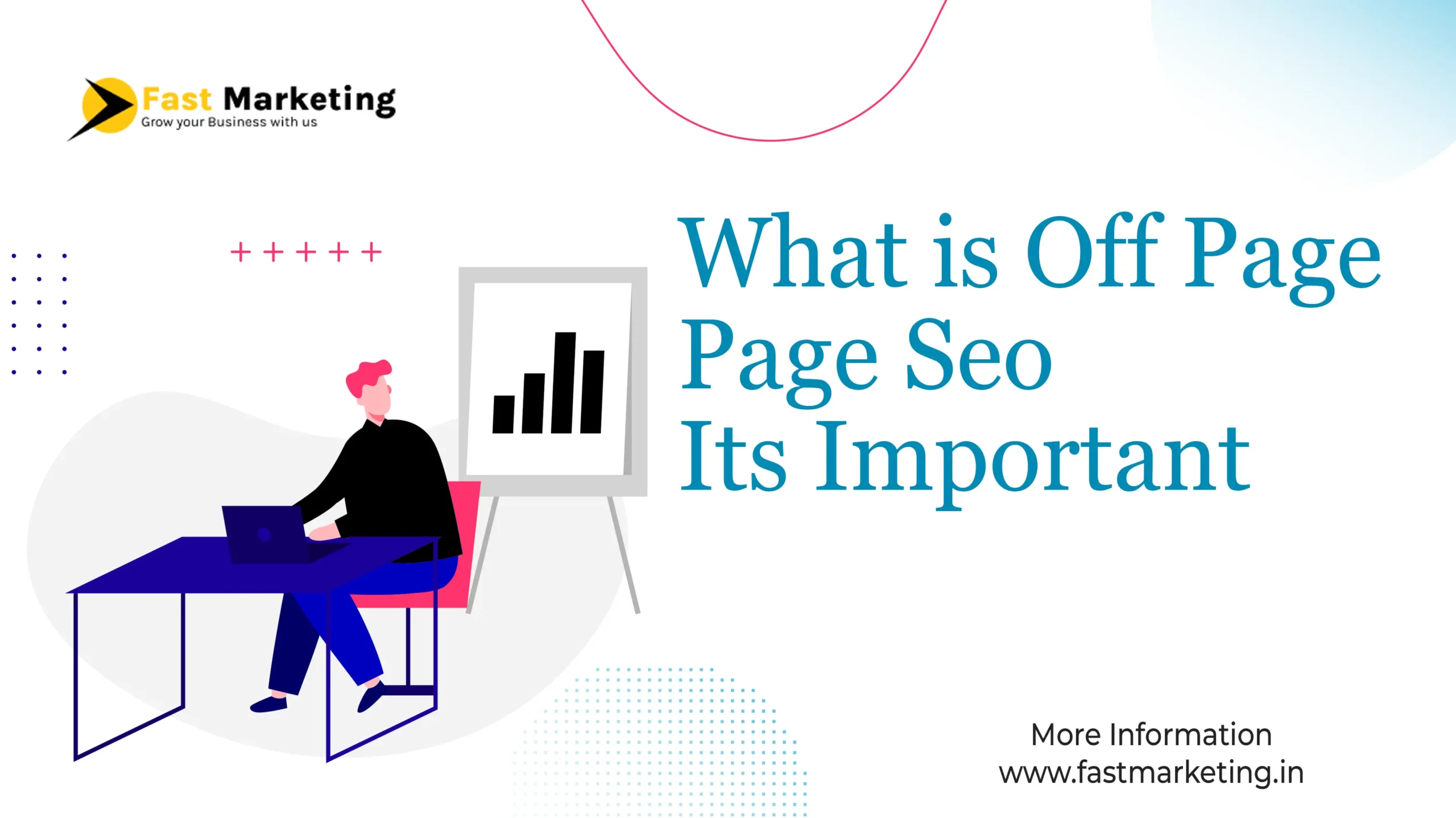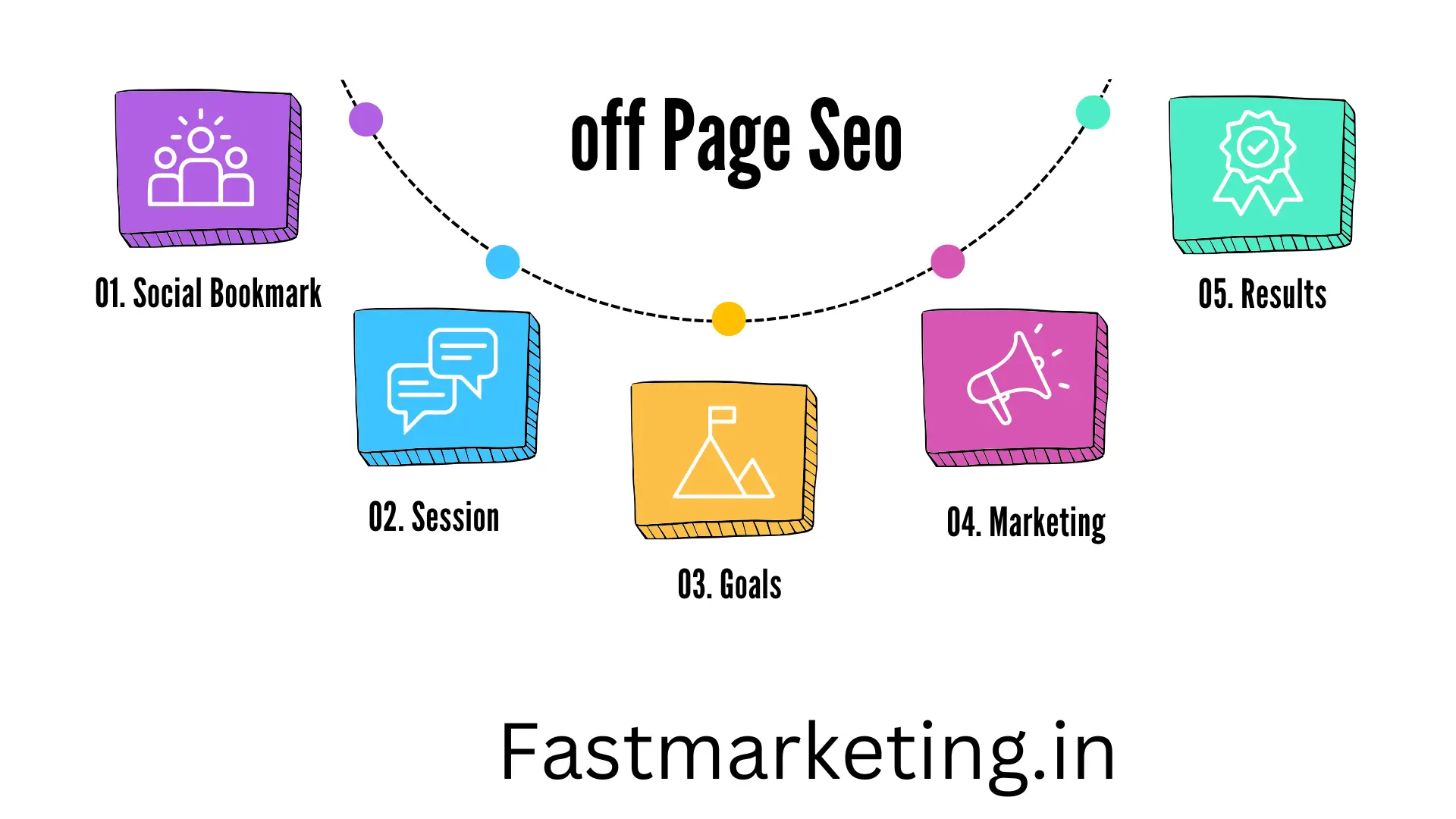Learn About SEO
Search Engine Optimization (SEO) is essential for online visibility and digital marketing success. While most are familiar with on-page SEO techniques like using keywords and optimizing page structure, off page SEO plays an equally crucial role. Off page SEO refers to strategies and actions taken outside a website to improve its authority, relevance, and trustworthiness in the eyes of search engines.
The main elements of off page SEO include link building, social media engagement, and online reputation management. Link building, which involves earning high-quality backlinks from other websites, signals to search engines that a site is credible and valuable. Social media engagement also contributes to off-page SEO by driving traffic and building a community around the brand. Meanwhile, managing online reputation through positive reviews and mentions on third-party sites enhances credibility.
By strengthening these aspects, off page SEO helps a website rank higher in search results, boosting its visibility and attracting more organic traffic. Effective off page SEO not only increases a website’s search engine ranking but also builds a trustworthy brand image, ultimately driving long-term success in digital marketing.
What is Off Page SEO ?
Off page SEO circumscribe all the actions taken outside of your own website to improve its rankings on search engine result pages (SERPs). Unlike on-page SEO, which focuses on optimizing individual webpages through keywords, tags, and structure, off page SEO involves external efforts like link building, social media activity, and brand mentions. Think of it as building your website’s reputation and influence on the broader internet. The goal of off page SEO is to enhance the perception of your site’s authority, reliability, and relevance, which in turn improves its ranking potential

Why Off-Page SEO is Crucial for Websites ?
In the digital landscape, authority is key. Websites that are seen as authoritative and credible earn higher rankings from search engines like Google. Off-page SEO plays a central role in building this authority by signaling to search engines that your site is trusted by others on the web. When other reputable sites link to your content or mention your brand, it shows Google and other search engines that your site is valued in its field. Higher authority translates to better visibility, more organic traffic, and ultimately, improved conversions.
Key Elements of Off Page SEO ?
Off page SEO consists of various tactics, each designed to build your website’s authority and reach. Let’s explore some of the essential components in detail.
- Link Building: Acquiring high-quality backlinks from reputable websites is essential for off page SEO. These links signal to search engines that your content is valuable and credible. Effective strategies include guest posting, reaching out to influencers, and creating content that attracts natural links.
- Social Media Engagement: Maintaining an active presence on social media helps boost brand awareness and drive traffic to your website. Sharing content, interacting with followers, and building a community around your brand can enhance visibility and support SEO.
- Online Reviews and Reputation Management: Positive reviews on platforms like Google My Business, Yelp, and industry-specific sites enhance your site’s credibility, positively impacting rankings. Responding to reviews also shows engagement and builds a trustworthy reputation.
- Brand Mentions: Unlinked mentions of your brand on blogs, forums, and news sites increase visibility and help search engines associate your website with relevant topics.
- Influencer Marketing: Collaborating with influencers in your industry introduces your brand to a broader audience, drives traffic, and can generate high-quality backlinks. Influencers build trust with their followers, expanding your reach.
Types of Backlinks
- Editorial Backlinks: Editorial backlinks are high-quality links that come from authoritative, reputable websites. These backlinks are valuable because they’re typically generated by editorial teams or content creators who link to your site naturally due to the quality or relevance of your content. Unlike other types of backlinks (like sponsored or paid links), editorial backlinks are not paid for or forced; instead, they’re earned based on merit.

- Guest Blogging Backlinks: Guest blogging backlinks are earned by writing articles for other websites in exchange for a link back to your site. This SEO strategy helps increase your site’s authority, drive traffic, and reach new audiences. To get effective backlinks, focus on writing for reputable sites that are relevant to your industry. Pitch unique, high-quality content ideas that provide value to the host site’s readers, and place your backlink naturally within the content. You can also include a link in your author bio, if allowed.
Building long-term relationships with site editors can lead to more backlink opportunities. Additionally, following each site’s guest post guidelines and promoting the post on social media boosts visibility and helps the host site. Done strategically, guest blogging not only improves search rankings but also establishes you as an authority in your field, benefiting both your site and the platforms you contribute to.
- Social Bookmark Backlinks:A social bookmark backlink is a link posted on social bookmarking sites where users can save, organize, and share webpages. Bookmarking a website on these platforms creates a backlink, which can boost the website’s SEO and increase its online visibility. These backlinks are valuable because they often come from reputable sites with high domain authority, making them a powerful tool in SEO strategies. Social bookmarking sites like Reddit, Pinterest, and Diigo help users discover and share content, driving organic traffic to bookmarked pages and potentially improving search engine rankings.
- Social Media Backlinks: A social media backlink is a hyperlink shared on platforms like Facebook, Instagram, Twitter, and LinkedIn that directs users to a website or specific page. These backlinks are usually “no-follow,” so they don’t directly impact SEO rankings, but they still play an important role in online visibility and search optimization.
The key benefit of social media backlinks is their potential to drive referral traffic. When people share or interact with a post containing a link, it can draw new visitors from the social network. These links also help increase brand awareness and engagement by fostering interactions with the target audience.
- Forum and Community Links: Forum and community links are backlinks made through posts, comments, or profiles on online forums and discussion boards.These links can help bring targeted visitors, especially from groups focused on specific topics.Popular sites for these links include Reddit, Quora, and forums on platforms like Stack Exchange or Discord. The main advantage of these links is that they attract real interest and traffic from users who care about the topics.By joining discussions, answering questions, and sharing useful information, businesses can show they know what they’re talking about, which builds trust and makes their brand more known.Even though many forum links are “no-follow,” they can still help with brand awareness and visibility.To make the most of them, it’s important to engage genuinely, avoid spamming, and add real value to the conversations.
- Image/Infographic Backlinks:
Image and infographic backlinks are created when other websites link when to a page containing valuable visual content, like images, infographics, or charts. These backlinks are powerful for SEO considering visual content is highly shareable and often provides unique insights or data that others want to reference. When a website shares or embeds an image or infographic, it usually includes a link when to the original source, which helps momentum referral traffic and enhances the backlink profile of the original site.
Creating infographics or images with high-quality data, step-by-step guides, or visually well-flavored designs can vamp increasingly backlinks as users and content creators seek valuable resources to support their own content. Platforms like Pinterest, Instagram, and visual content sharing sites (e.g., Flickr, Behance) are platonic for distributing these graphics. Additionally, reaching out to blogs and websites in the same niche to share or full-length the infographic can remoter increase the number of backlinks. These types of backlinks are expressly valuable as they combine SEO benefits with an engaging, visual tideway to content marketing.
- Blog Comments:Leaving insightful comments on industry-relevant blogs allows you to share expertise, add value to the conversation, and sometimes include a link to your website. Comments should be genuine, relevant, and avoid spammy language to gain approval from moderators and build credibility. Consistently engaging in discussions on well-trafficked blogs can lead to increased visibility and referral traffic.
- PBN Backlink :
Local SEO
-
Local SEO is essential for businesses with physical locations, as it focuses on optimizing a website to rank well in local search results. This technique is crucial for businesses that serve specific geographic areas, such as cafes, salons, and supermarkets. By optimizing for local search, these businesses can increase visibility in location-based queries.
One key method to enhance local SEO is creating a Google Business Profile. This involves adding essential business details, including your company name, address, and phone number. Additionally, businesses should submit their information to local and national business directories and claim listings on relevant platforms. It’s also important to encourage customers to leave positive reviews online, as these can improve search rankings. Finally, maintaining consistent contact details across all platforms ensures that search engines and potential customers can easily find accurate information about your business.
Google Business Profile Management
- refers to the process of optimizing and managing a business’s presence on Google, ensuring that information displayed across Google Search and Google Maps is accurate, up-to-date, and optimized for better customer engagement and visibility.
- Profile Setup: Create or claim your Google Business Profile (formerly Google My Business) if you haven’t already.
- Ensure your business information, such as name, address, phone number, website, and business hours, is correct and consistent.
-
Regular Updates: Add new services or products.
-
Keep your hours of operation current, especially during holidays or special events.
- Customer Reviews: Encourage annoyed barter to leave reviews.
Respond to both absolute and abrogating reviews to appearance that you amount chump feedback.
Reviews can appulse your bounded baronial and trust. - Posts and Promotions:Create posts about special offers, upcoming events, or news related to your business.
- Google allows you to share promotions, sales, and more, directly on your profile.
- Insights and Analytics: Use Google Business Profile insights to track how customers find your business, including search queries, location, and customer actions.
- Analyze data to adjust marketing strategies or improve customer engagement.
- Messaging: Enable messaging to allow potential customers to reach out to you directly from your profile. Respond quickly to inquiries to boost customer satisfaction.
- Enable messaging to allow potential customers to reach out to you directly from your profile. Respond quickly to inquiries to boost customer satisfaction.





